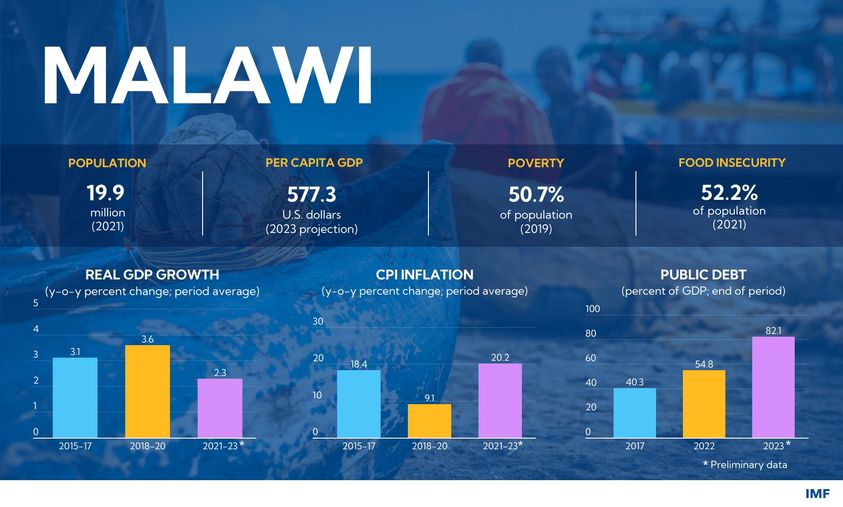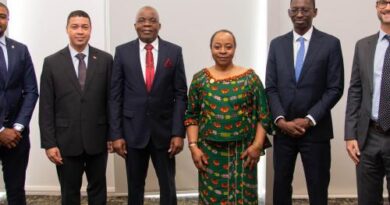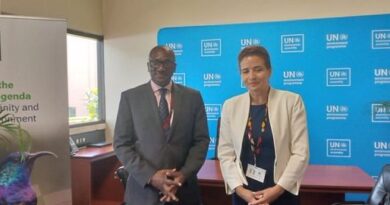Malawi Implements IMF Economic Reform Program Amidst Economic Challenges
Malawi is embarking on a journey towards economic stability and sustainability with the implementation of an Extended Credit Facility (ECF) arrangement approved by the International Monetary Fund (IMF).
This move comes as the country grapples with stagnant growth, unsustainable debt levels, and the aftermath of various shocks including a cholera outbreak and Cyclone Freddy.
The $175 million ECF arrangement aims to support Malawi’s commitment to economic reforms geared towards fostering inclusive and sustainable growth.
In an interview with IMF Country Focus, Malawi’s Resident Representative Nelnan Koumtingue outlined the program’s goals, emphasizing the restoration of macroeconomic stability as a top priority.
Koumtingue highlighted the challenges Malawi faces, including the struggle to sustain growth and alleviate poverty despite significant inflows of official development assistance.
The recent years have been particularly trying, with substantial emergency financing extended to the country. To maintain basic public services, Malawi also borrowed from domestic financial institutions, leading to increased pressure on the exchange rate and prices.
However, Koumtingue expressed optimism about Malawi’s prospects, emphasizing the importance of staying the course on the reform agenda.
The ECF-supported program aims to stabilize the economy by addressing fiscal deficits, strengthening reserves, and implementing structural reforms in critical areas such as public financial management and governance.
The role of the international community in supporting Malawi’s goals was also underscored, with Koumtingue noting the assistance provided in debt restructuring, grants, concessional loans, and technical assistance.
Regarding the debt restructuring process, Malawi is in discussions with creditors while seeking immediate relief to maintain public services. The devaluation in November 2023, though difficult, was deemed necessary to address foreign exchange shortages and stabilize the exchange rate.
Looking ahead, semi-annual reviews will assess progress on economic policies, with disbursements under the ECF arrangement contingent on successful completion of these reviews.



